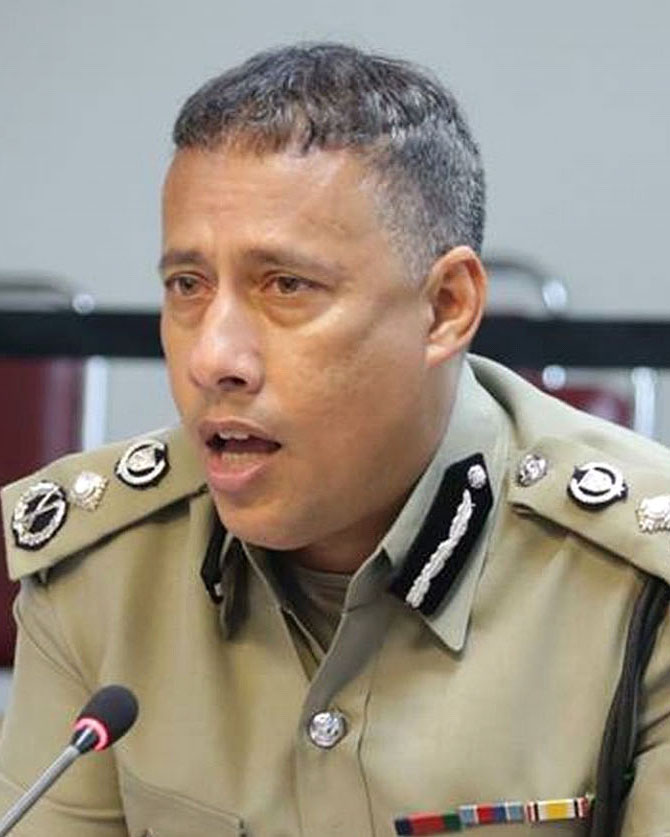(Trinidad Guardian) In a bid to protect T&T’s maritime borders from illegal migrants, piracy, kidnapping, and smuggling of guns and drugs into T&T the Police Service intends to establish an elite air unit from tomorrow.
This was revealed at a Joint Select Committee (JSC) into National Security, chaired by Fitzgerald Hinds, where Police Commissioner Gary Griffith and Deputy Commissioners Deodath Dulalchan and Harold Phillip were grilled into the operations of the TTPS at Tower D, Parliament Building, Port-of-Spain.
Member Roodal Moonilal questioned Griffith what was the police plan to protect T&T’s maritime borders in light of infiltration of illegal migrants and criminals coming in via the sea, while there were six local fishermen who were recently kidnapped.
Griffith said the TTPS had intensified its efforts to protect the country’s sea borders by working with intelligence gathering and information gathered would be filtered back to the Coast Guard, Customs and Excise, Strategic Services Agency, Defence Force and Immigration Division.
“We intend to have a covert operative unit to ensure that we can have individuals who can provide information to us without the criminal being aware. We will have troops that will work covert and overt in the right manner to ensure that we can have that border secured.”
Griffith said he had no intention of shirking his responsibilities.
Having heard complaints that some members of the TTPS, who worked at Icacos, Cedros, La Breas and Erin had been working with gun and drug runners, Griffith said some officers were asked to take a polygraph test and those who refused were transferred and an elite unit was created to crack down on the illegal activities.
“In the very near future, we intend to utilise air surveillance in the TTPS. It will be complemented by the drones. We will be able to monitor that peninsula on a 24/7 basis in real time through the National Operations Command Centre. So what you going to get is real-time footage monitoring the situation having proper intelligence gathering making sure that we have the right police officers we can trust,” Griffith said.
Moonilal said this was the first time he heard of such a unit in the TTPS and pressed Griffith to explain its functions and status.
“We are aware that there is a clear and present danger in dealing with that is happening in the mainland. We will be redeploying personnel from specific areas into the unit that we can see that will be a greater concern. And that is being done by February 1,” Griffith said.
Griffith said while the TTPS had an air division using drones these were not of high standard.
“The drones are just a higher standard to what you would get in “Toys R Us (a toy store). We need to move with the times.”
Moonilal told Griffith that the Air Unit was critical, given the challenges we faced in Venezuela, asking if the drones needed to be improved technology wise.
Griffith said the improvement of the drones would involve taking footage for several hours on and off Coast Guard vessels.
“We must get real-time video footage. This is what we have prepared …this would be done within a few days. And by doing that we would be able to monitor and lock the borders as quickly as possible,” Griffith responded.
The commissioner also stated that the TTPS needed the use of helicopters as well for surveillance and “to ensure the movement of troops…say an immediate response by some of the elite units in case of a volatile situation. We are looking at that. But I think from the concept of using helicopters because of cost, this is something we have been working with National Security Minister and through the National Security Council I think something is being prepared.”
On Monday, National Security Minister Stuart Young held a meeting with heads of law enforcement, border security officials and intelligence agencies.






